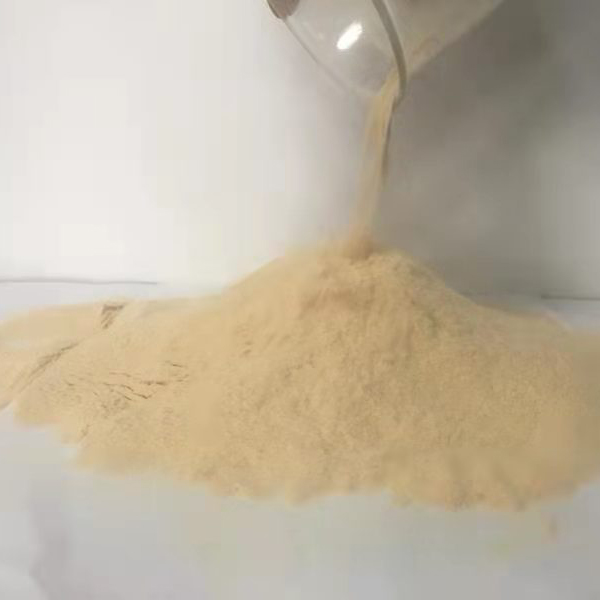
News
Oct . 22, 2024 13:17 Back to list
Customized Micronutrient Fertilizers for Sustainable Agriculture in India
The Rise of Custom Micronutrient Fertilizers in India A Sustainable Solution for Agriculture
In recent years, the agricultural landscape in India has witnessed a profound transformation, with farmers increasingly turning to customized micronutrient fertilizers. This shift is driven by the need to enhance soil fertility, improve crop yields, and ultimately ensure food security for a growing population. As traditional farming methods come under pressure from changing climate conditions and soil nutrient depletion, custom micronutrient fertilizers have emerged as a sustainable solution that addresses the specific nutritional deficiencies of various crops.
Understanding Micronutrients and Their Importance
Micronutrients are essential elements required by plants in small quantities, yet they play a critical role in various physiological and biochemical processes. Elements such as zinc, iron, manganese, copper, boron, and molybdenum are vital for plant growth, influencing everything from chlorophyll production to enzyme activity. Deficiencies in these microelements can lead to suboptimal plant health, reduced crop yields, and lower quality produce. Unfortunately, many Indian soils are inherently deficient in these micronutrients, making their supplementation indispensable.
The Necessity for Customization
The agricultural practices in different regions of India vary significantly due to differences in soil types, climatic conditions, and crop requirements. What works well in one area may not yield the same results in another. This is where custom micronutrient fertilizers come into play. By tailoring the composition of these fertilizers to meet the specific needs of local soils and crops, farmers can enhance nutrient availability and maximize agricultural productivity.
For instance, a region that predominantly cultivates rice may benefit from a fertilizer high in zinc, as rice crops are often found to be zinc-deficient. Conversely, a region focused on fruit and vegetable production might require a different blend that includes higher levels of boron or iron. Customization not only optimizes nutrient uptake but also minimizes the risk of over-fertilization, which can lead to environmental harm and increased production costs.
Technological Innovations Driving Customization
The rise of technology in agriculture has played a crucial role in the development and adoption of custom micronutrient fertilizers. Soil testing services have become more accessible, allowing farmers to gain detailed insights into soil nutrient profiles. With this data, agricultural scientists and extension services can formulate bespoke fertilizer mixes tailored to specific farming requirements.
Additionally, advancements in precision agriculture technologies, such as satellite imagery and data analytics, enable real-time monitoring of crop health and nutrient status
. This information can guide farmers in making informed decisions regarding when and how to apply micronutrient fertilizers effectively.custom micronutrient fertilizer india

Benefits of Custom Micronutrient Fertilizers
The benefits of adopting custom micronutrient fertilizers are manifold. Firstly, they improve crop quality and yield, leading to increased profitability for farmers. Healthy crops not only fetch better market prices but also contribute to higher nutritional value for consumers.
Secondly, the application of tailored fertilizers enhances soil health over time. By addressing nutritional deficiencies, these fertilizers promote a more balanced ecosystem in the soil, fostering the growth of beneficial microorganisms. This, in turn, can lead to improved soil structure and fertility.
Lastly, custom micronutrient fertilizers contribute to sustainability in agriculture. Efficient nutrient use minimizes waste and reduces the environmental impact associated with chemical fertilizers. As concerns over climate change and resource depletion grow, adopting these sustainable practices is imperative for the future of farming.
Challenges and the Road Ahead
Despite the clear advantages, the adoption of custom micronutrient fertilizers faces several challenges in India. Many farmers lack awareness and knowledge about the importance of micronutrients, and traditional practices often dominate. Moreover, the cost of soil testing and customized fertilizers can be prohibitively high for smallholder farmers.
To overcome these barriers, increased awareness programs and government initiatives are crucial. Collaborations between agricultural universities, research institutions, and local governments can facilitate the dissemination of knowledge and resources. Financial assistance and subsidies can also encourage farmers to experiment with these innovative fertilizers.
Conclusion
The shift towards custom micronutrient fertilizers in India is more than just a trend; it represents a transformative approach to agriculture that prioritizes sustainability and productivity. By understanding the unique needs of local ecosystems and crops, farmers can ensure enhanced yields, better quality produce, and healthier soils. As technology continues to advance, the future of Indian agriculture looks promising, paving the way for a food-secure nation that can sustainably feed its growing population. Through collaborative efforts and awareness, the widespread adoption of custom micronutrient fertilizers can become a cornerstone of agricultural success in India.
-
Premium Water Soluble Micronutrients for Plants – Reliable Supplier & Manufacturer Quotes
NewsJul.05,2025
-
Premium Micronutrients Plant Fertilizer Factory - Best Price & Quotes
NewsJul.05,2025
-
OEM Aluminum Chelating Agent Supplier – High-Efficiency Chelation Solutions for Aluminum Processing
NewsJul.04,2025
-
High Quality Polyaspartic Acid Potassium Salt Supplier Reliable L Aspartic Acid & Iminodisuccinic Acid Salts
NewsJul.04,2025
-
OEM Potassium Oxalate Chelating Agent Manufacturer & Supplier High Purity & Custom Solutions
NewsJun.24,2025
-
OEM Polymer of Aspartic Acid Supplier L & D Aspartic Acid Customization High-Quality, Eco-Friendly Solutions
NewsJun.10,2025
